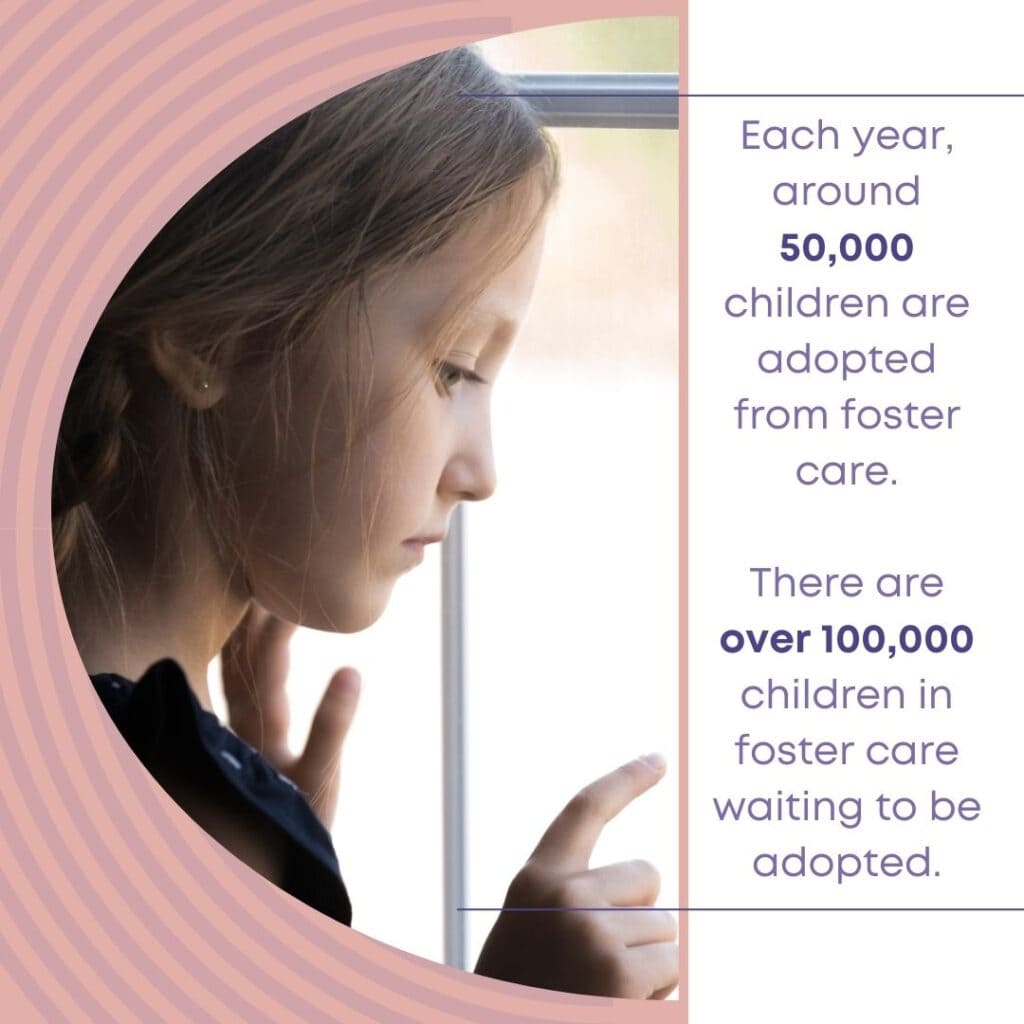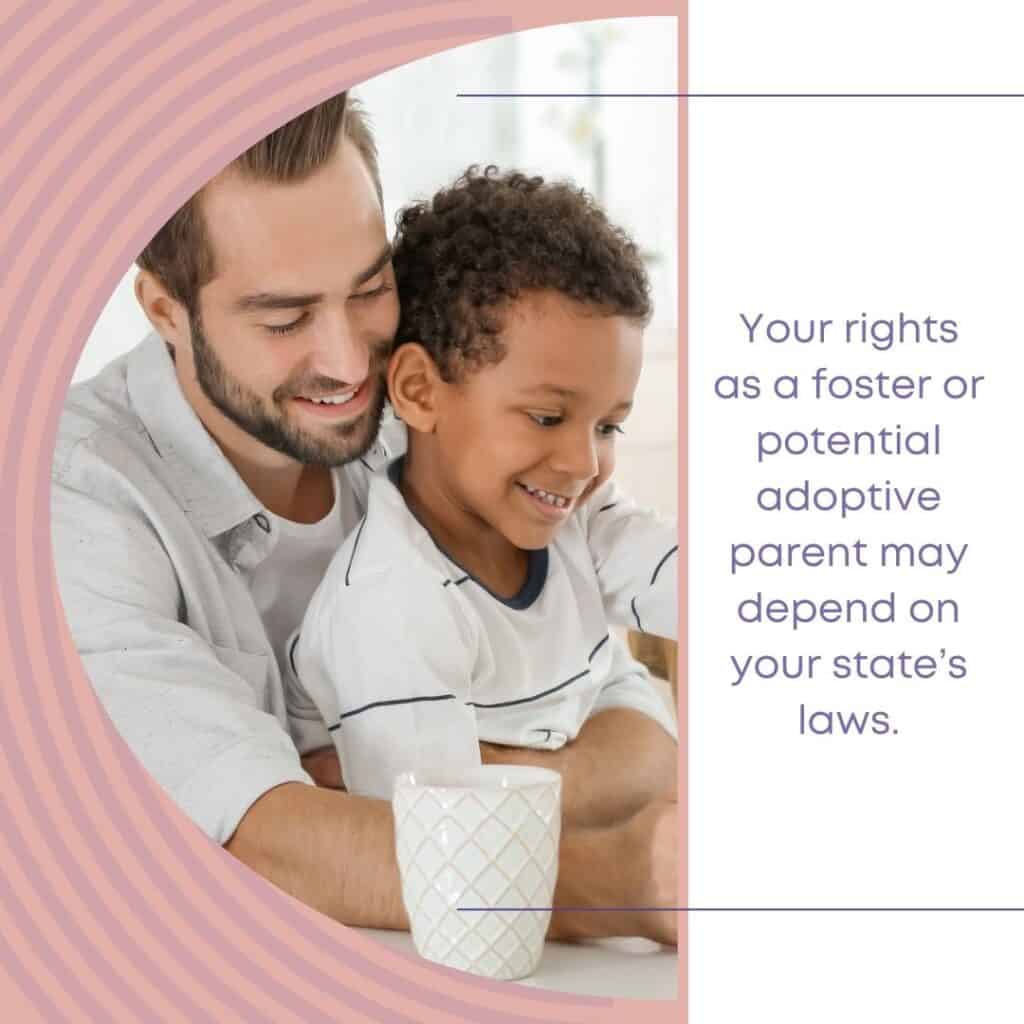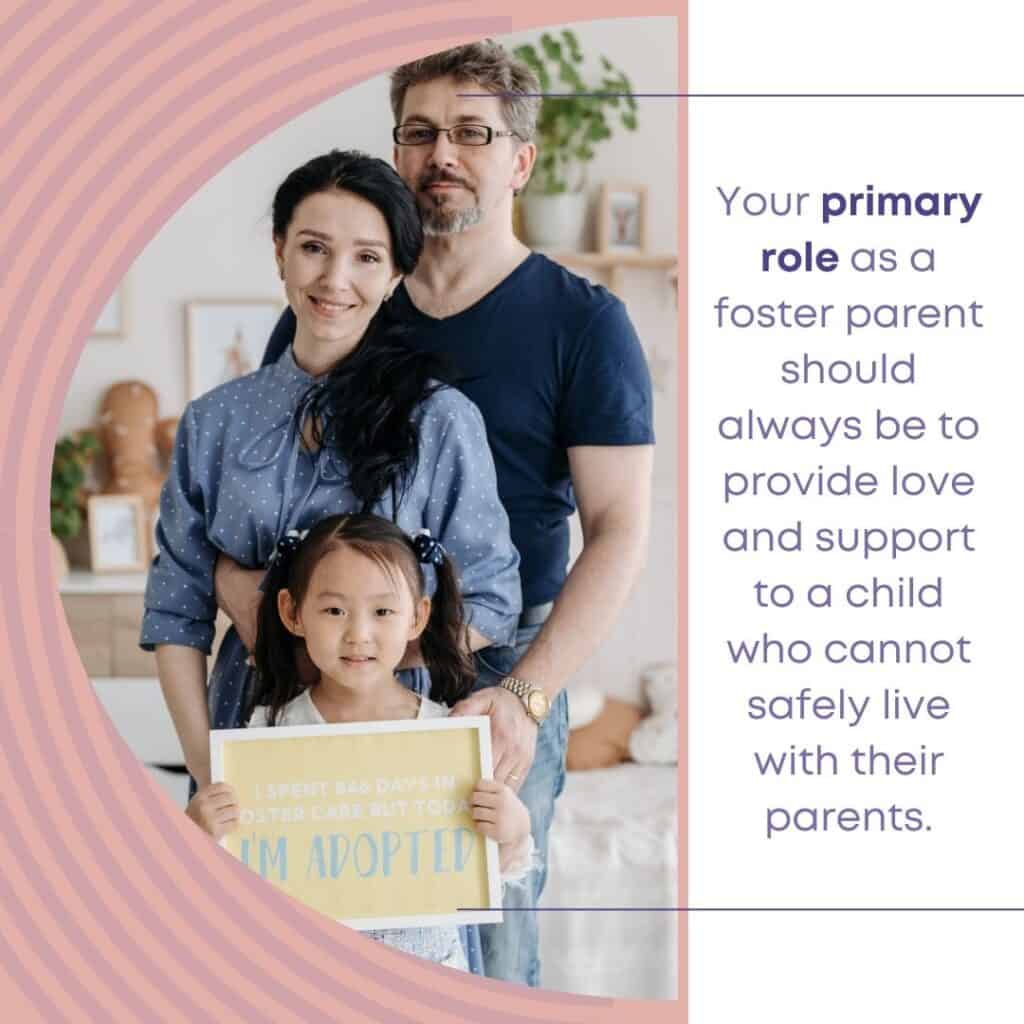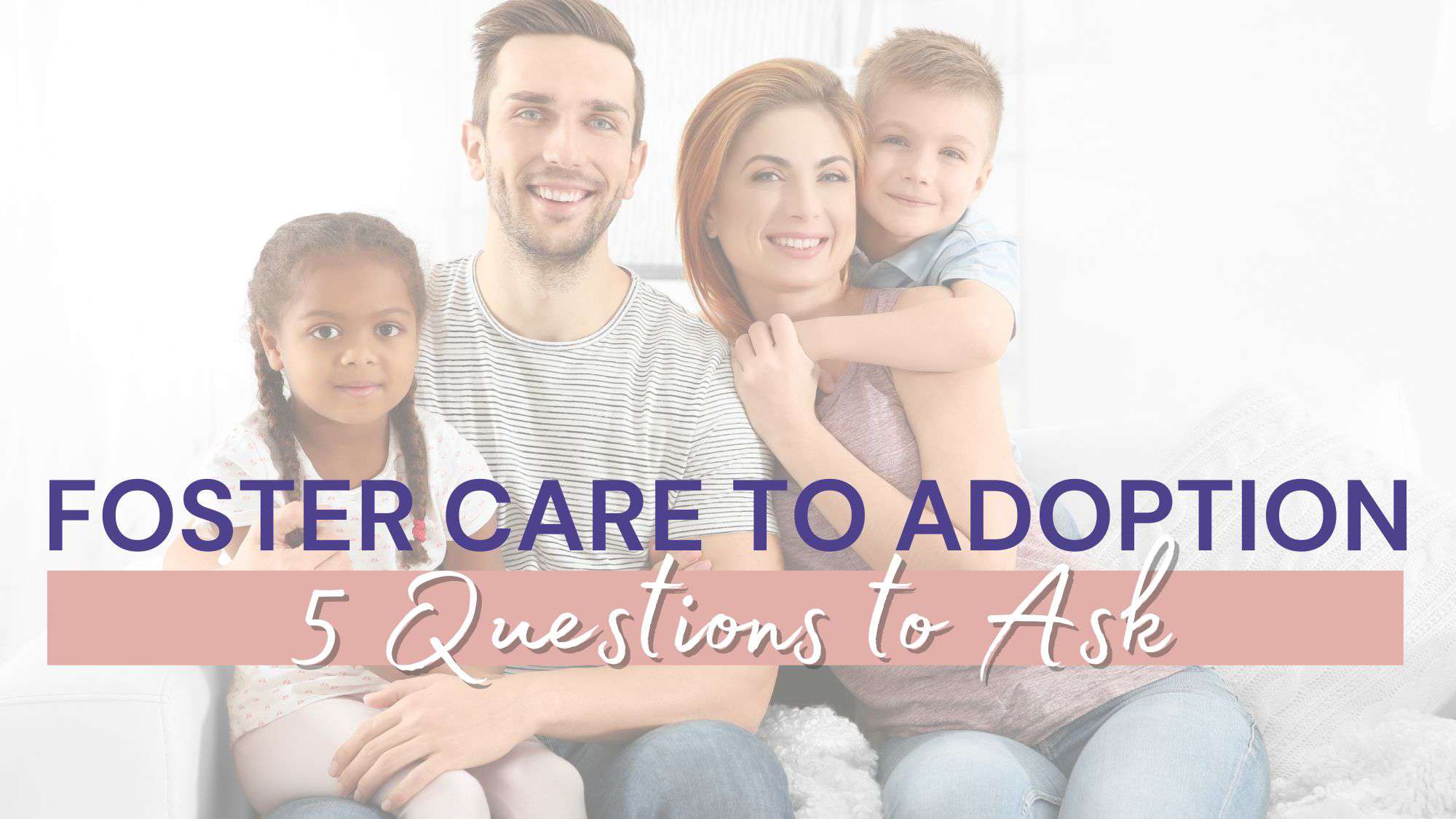If you’re hoping to adopt a child, becoming a foster parent is often a great way to bring into your home a child who may, under the right circumstances, become a part of your family. Each year, around 50,000 children are adopted from foster care, and there are over 100,000 children in foster care waiting to be adopted. But as experienced foster parents know, the road from foster care to adoption is often a long one.
5 Questions to Consider About Foster Care to Adoption
Whether you’re considering fostering as a path to adoption, have just opened your home to a “foster to adopt” child, or have been providing a home for a child in foster care that you now hope to adopt, here are questions that may occur to you along your foster to adoption journey.

1. What Should I Know Before Accepting a Child Into My Foster Home?
Before agreeing to care for a child in foster care, it is critical to understand the child’s strengths and needs. Remember that children who have come into state custody have often experienced severe neglect and may have experienced physical or sexual abuse.
We know from both scientific research and common experience that children who have been neglected, abused, or abandoned often struggle to connect with others. They may exhibit behaviors that are concerning. If you are considering becoming a foster to adoptive parent, make sure you are equipped to care for children who have suffered trauma:
- Ensure your foster parent training adequately covers how trauma impacts children. If you feel unprepared by that training, consider learning as much as possible. We recommend reading The Connected Child and other resources that you can find from the Karyn Purvis Institute at Texas Christian University.
- Before accepting a child into your home, ensure you have a full understanding of the child’s needs as well as the reasons the child entered foster care. This is especially important when working with children who have a behavioral health diagnosis, have experienced sexual or physical abuse, have attachment disorders, or have experienced multiple foster placements. These children deserve love and care, but you need to make sure you understand those needs and can provide the level of care they need to thrive.
- Don’t be afraid to delay or decline to care for a child whose needs are beyond your ability to provide. A critical part of providing appropriate foster care is ensuring that the child’s therapeutic needs can be met in their placement. Ensuring that proper placement reduces the possibility that the child will experience a placement disruption, which is traumatic for the child and the foster family.
2. If I’m Primarily Interested in Adopting, What Should Be My Role as a Foster Parent?
Your primary role as a foster parent should always be to provide love and support to a child who cannot safely live with their parents. Except in cases of severe abuse or abandonment, child welfare agencies and courts generally make efforts to reunite the child with a parent or close relative. Nationally, just under 50% of children are reunited with parents, usually within a year or so.
If you are fostering a child who may be reunited with parents or other family, you can help that child know that they have someone they can rely on while they are with you. Many foster parents have found that they can become mentors to biological parents and sometimes even develop relationships with the family that extend beyond the child’s return home.
Foster parents, as well as pre-adoptive parents, have the right under federal law to be notified of court hearings involving the child and to be heard in court. Because they spend so much time caring for their foster children, foster parents are also a great source of information about the child’s needs and should take every opportunity to share their views with the judge, the child’s guardian ad litem, and the attorneys.

3. Do I Have Rights as a Foster or Potential Adoptive Parent?
Your rights as a foster or potential adoptive parent may depend on your state’s laws. As noted above, all states are required to comply with federal law, ensuring the right of foster parents to notice of hearings involving the child and the right to be heard in court.
Additionally, many states have enacted Foster Parent Bills of Rights that outline what families can expect when they become foster parents. Although these particular laws aren’t always enforceable in court, many states provide an administrative procedure for addressing violations.
Some state legislatures have gone further and passed laws that give certain foster or potential adoptive parents substantive rights in the court process. In Georgia, for example, foster parents can object if the agency seeks to remove a child from their home and argue in court why the placement change is inappropriate.
In other states, foster parents who have cared for a child for a significant period of time have the right to legally intervene in the foster care court case. Check with a lawyer in your state regarding your specific rights.
Federal law also prohibits racial discrimination in foster and adoptive placements, ensuring that agencies do not deny placement on the basis of the child’s or the foster/adoptive parent’s race.
4. I’ve Cared for a Foster Child for Over Two Years, and the Parents Aren’t Working on Their Case Plan. What Can I Do?
Of course, the longer a child remains with you, the more attached they will become to you as a foster parent. Don’t be afraid of that attachment, as evidence shows that a child who has a solid attachment with a trustworthy adult will be better able to form other stable relationships even if they return home or are placed with family. At the same time, we know it’s traumatic for children to linger in foster care without permanency.
If you feel the state agency has made efforts to help the child return home safely, but the parent is not doing their part, you should share your concerns with the case manager, the child’s guardian ad litem, and the court. The court must review foster care cases at regular intervals, and there may also be “family team meetings” or other opportunities to express your concerns. Many of the various Foster Parent Bills of Rights make clear that foster parents must be treated as integral members of the team working to provide the child with safety, stability, and permanency.
Many of our clients in this position ask if they need an attorney. That answer may depend on whether your state allows foster parents to intervene, whether the child welfare agency is “on the same page” with you regarding the child’s need for an adoptive family, and whether having your own attorney will help or hinder the resolution of the case.
If you find yourself in a situation where the child in your care appears unlikely to return to their parents or family and deserves a permanent, loving adoptive family, we would encourage you to consult with a qualified child welfare attorney. It may be possible to take them on the journey from foster care to adoption.

5. We’re Getting Close to the Termination of Parental Rights and Have Been Offered the Opportunity To Adopt. What Do We Need To Know?
Congratulations! You may want to consider consulting with an attorney at this point. Ask the agency and your attorney to find answers to the following questions:
Is the Child Eligible for Adoption Assistance?
Federal and state funds are available that will provide subsidies to support children adopted from foster care in certain cases, especially for children who are older, have special needs, or are part of a sibling group being adopted together. These subsidies may include regular financial stipends, help with attorney fees and adoption expenses, and health insurance coverage, usually through Medicaid. In most states, adoptive parents have the opportunity to negotiate the terms of that adoption assistance.
What Services May My Child Need in the Future?
Remember that children who have experienced foster care have sometimes experienced severe trauma. Without consistent and ongoing therapy, that trauma may later display itself in developmental and educational delays or behavioral issues. Studies indicate that 52% of male and 36% of female children adopted from foster care receive mental health services. As many as 24% of adolescents adopted from foster care experience an adoption disruption, often due to behavioral and behavioral health issues. Determine how your child will be able to access services for any special educational or behavioral health needs that may arise.
What Assistance Will Be Available As My Child Transitions to Adulthood?
Federal and state programs are available that provide educational, housing, and other assistance to former foster youth, including, in some cases, children and youth adopted from foster care. Check with your state for details.



















